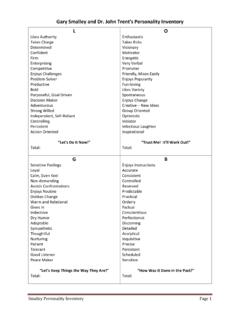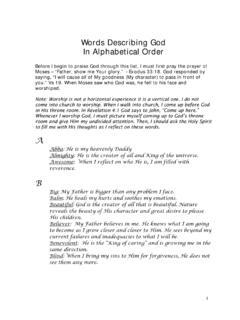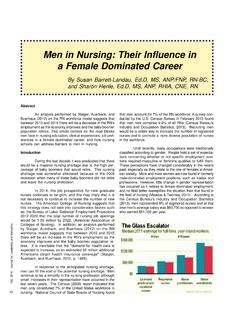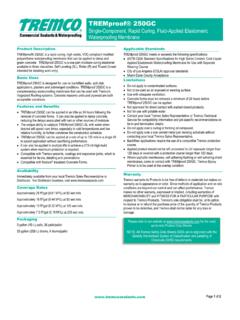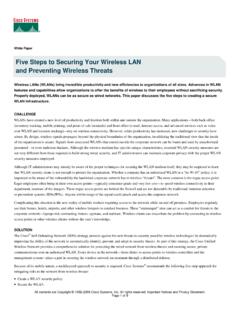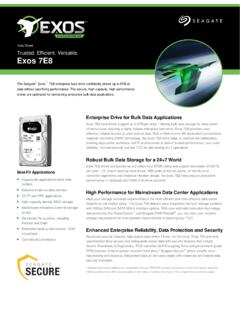Transcription of Student Engagement in Assessments: What Students and ...
1 Stanford Center for Opportunity Policy in Education Student Engagement in Assessments: What Students and Teachers Find Engaging By Soung Bae and Kari Kokka Stanford Center for sco e Stanford Center for Opportunity Policy in Education assessment , Learning, & Equity Acknowledgement: Student Engagement in Assessments: What Students and Teachers Find Engaging was prepared with the generous support of the Sandler Foundation. We gratefully acknowledge their support. The research was conducted independently by Stanford University and does not represent the views of the sponsors.
2 The Stanford Center for Opportunity Policy in Education (SCOPE) fosters research, policy, and practice to advance high-quality, equitable education systems in the United States and internationally. The Stanford Center for assessment , Learning, and Equity's (SCALE) mission is to improve instruction and learning through the design and development of innovative, educative, state-of-the-art performance assessments and by building the capacity of schools to use these assessments in thoughtful ways, to promote Student , teacher, and organizational learning. Copyright 2016 Stanford Center for Opportunity Policy in Education Citation: Bae, S.
3 , & Kokka, K. (2016). Student Engagement in Assessments: What Students and Teachers Find Engaging. Stanford, CA. Stanford Center for Opportunity Policy in Education and Stanford Center for assessment , Learning, and Equity. sco e Stanford Center for Opportunity Policy in Education Stanford Center for Opportunity Policy Education Stanford Center for assessment , 505 Lasuen Mall Learning and Equity Stanford, CA 94305 1705 El Camino Real Email: Palo Alto, CA 94306. Introduction A lthough research has shown that Student Engagement is strongly related to performance on assessment tasks, especially for traditionally underserved subgroups of Students , including Students of color, Students living in poverty, Students with special needs, and Students for whom English is a second language (Arbuthnot, 2011; Darling-Hammond et al.)
4 , 2008; Walkington, 2013), increasing Student Engagement has not been the goal of standardized tests of content knowl- edge. In the traditional assessment paradigm, attention to Engagement has been displaced by a definition of equity that focuses on issues of bias and accessibility. A common tactic used to avoid bias has been to create highly decontextualized test items. This tactic has had the inadvertent result of decreasing Students ' opportunities to create meaning in tasks as well as their motivation to cognitively invest in them, thereby undermining Students ' opportunities to adequately demonstrate their knowl- edge and skills.
5 Recent state and federal policies, however, are changing the assessment landscape. For example, the adoption of the Common Core State Standards has spurred a renewed interest in the development of more balanced assessments that are designed to measure higher order thinking skills and support deeper learning. More bal- anced assessments include performance-based tasks that tap into Students ' higher order thinking skills and require Students to perform, create, and demonstrate their knowledge, skills, and abilities. In addition, the reauthorization of the Elementary and Secondary Education Act of 1965 (known as the Every Student Succeeds Act [ESSA]), which was signed by President Obama in 2015, includes assessment pro- visions that may offer opportunities to increase Student Engagement in large-scale assessments.
6 The act specifies that state and local assessments should involve mul- tiple up-to-date measures of Student academic achievement, including measures that assess higher-order thinking skills and understanding, which may include measures of Student academic growth and may be partially delivered in the form of portfolios, projects, or extended performance tasks (ESSA, 2015, 1117). Assessments that tap into Students ' higher order thinking skills, such as performance- based tasks, can support the development of Students ' deeper understanding of content (Vogler, 2002) and increase Student Engagement in learning (Foote, 2005).
7 Thus, the changing state and federal landscape offers a ripe opportunity to develop performance-based assessments that allow Students to demonstrate their evaluation, synthesis, analysis, and application skills without sacrificing their Engagement . Student Engagement in Assessments: What Students and Teachers Find Engaging 1. The goal of this study is to provide guidance to educators, assessment developers, and policymakers on how to increase Student Engagement in performance-based assessments. We take up this challenge by examining how Students and teachers conceptualize and recognize Engagement features in performance-based tasks.
8 To provide theoretical grounding for this study, we begin by defining Student engage- ment as a combination of the following concepts: relevance, authenticity, autonomy, collaboration, higher order thinking skills, and self - assessment . Next, based on interviews of study participants, we report on what qualities Students and teachers perceive to be engaging in assessments. We find that this study confirms the importance of these six Engagement concepts, adding an understanding of the nuance and features of each. We conclude by dis- cussing how Student Engagement may be meaningfully incorporated into assessment tasks so that all Students are more fully engaged and motivated to demonstrate their understanding.
9 2 Stanford Center for Opportunity Policy in Education Literature Review W e reviewed the literature and identified six concepts that grounded our understanding of Student Engagement . Relevance The concept of relevance refers to the process by which a Student perceives that a task will satisfy important personal needs, motives, or values (Keller, 1983). Relevance fuels a Student 's motivation to learn (Brophy, 1986). More specifically, relevance answers the question Why does the educational content matter to the stu- dent? and provides the Student with an intrinsic reason for doing a task.
10 Relevance may be fostered by making a connection to Students ' lived experiences, interests, or prior knowledge. These connections create a need to know for Students and offer a reason for doing the task. When task scenarios are used to connect a task to Students ' own lives, Engagement and performance improve (Meier, 2008). For example, Walkington (2013) found that context personalization increased Student performance on algebraic word prob- lems. She studied 145 ninth graders in three algebra classes where teachers utilized Cognitive Tutor Algebra, a computer-based tutoring system that individualizes instruction through adaptive problem selection, hints, and feedback.






